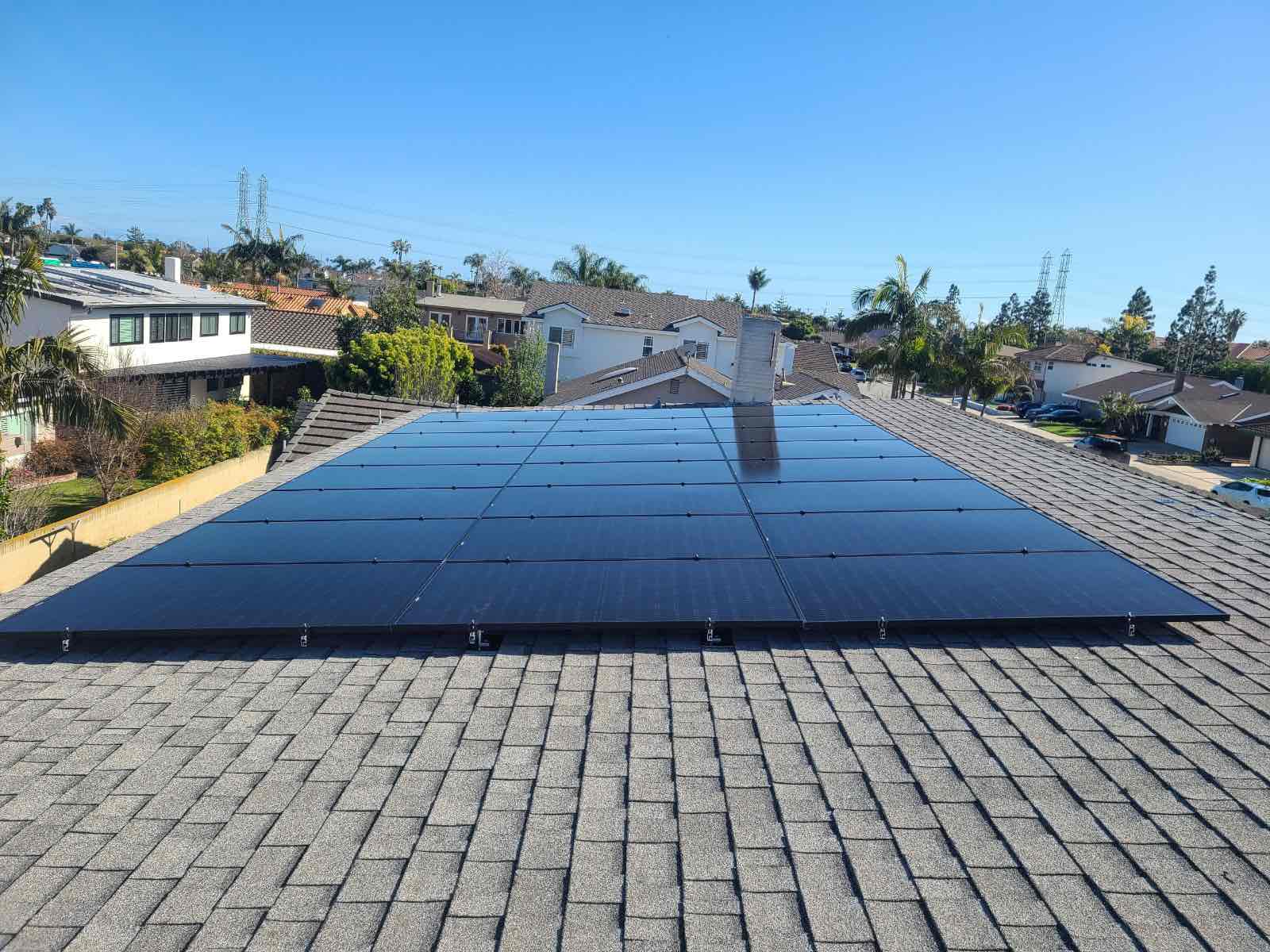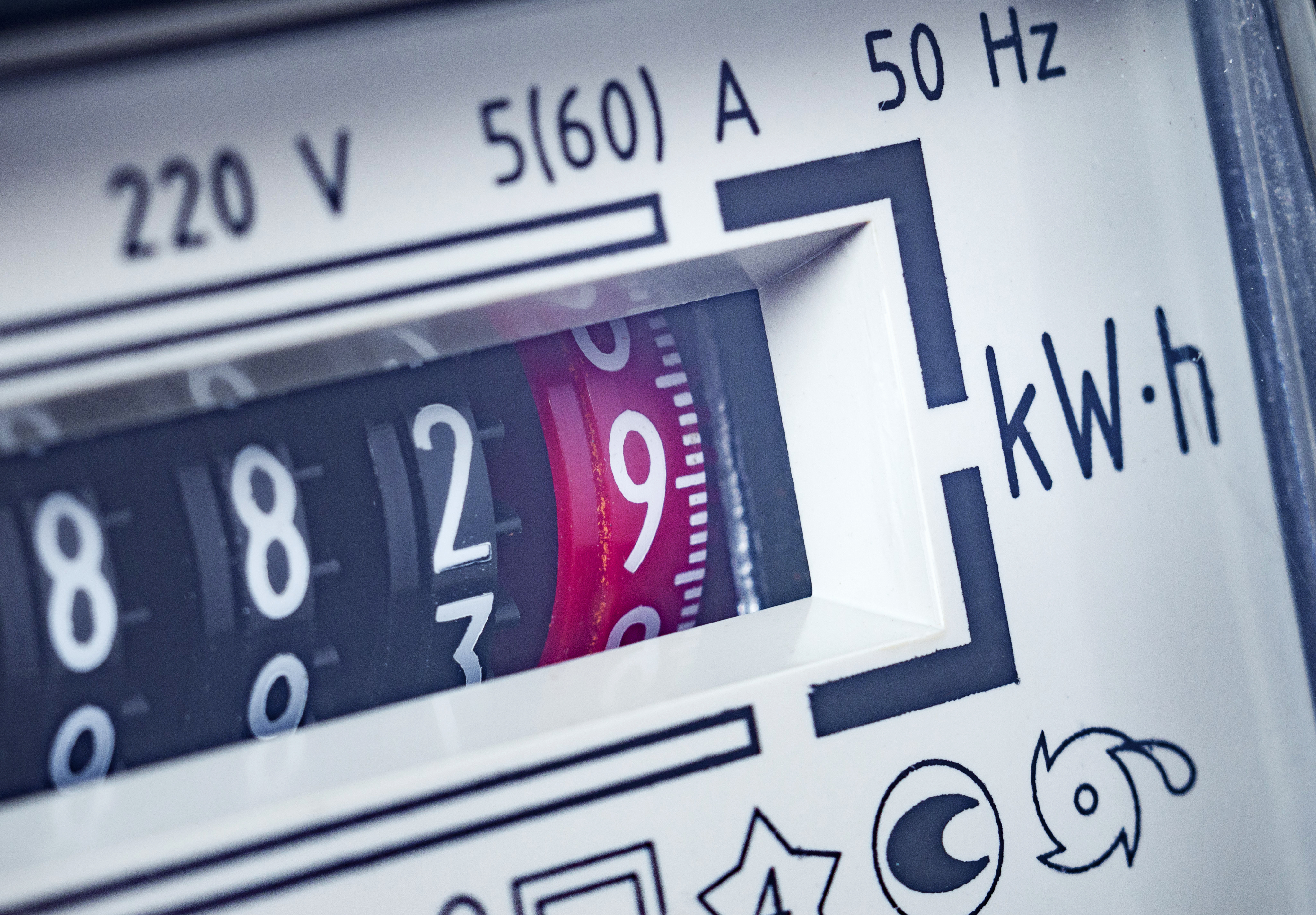Photo credit: Orange County Solar
The sun is an incredible source of energy, continuously producing about 173,000 terawatts of energy. By comparison, down here on Earth, we have installed about one terawatt of solar power capacity.
Solar panels allow us to capture sunlight and turn it into electricity that can power homes and businesses. Groups of panels, or solar arrays, range in size from residential rooftop systems to larger solar farms that can stretch over several acres of land. But how does sunlight actually become electricity? Let’s take a look.
What is a solar panel?
Solar panels comprise about 60 individual solar cells wired together to form a single panel. These cells are made from layers of silicon, which is a semiconductor that can transmit electricity when exposed to sunlight. A metal frame with a glass casing houses the cells to form a panel. Multiple panels installed side by side form a solar system that can power a home or business.
Photo credit: Orange County Solar, Irvine, CA
There are two main types of solar panels used in residential installations:
- Monocrystalline solar panels are usually black in color and account for the majority of home installations. They are also the most efficient panels, which means fewer are needed to produce the same amount of power as a polycrystalline panel. Monocrystalline panels have a long lifespan, with warranties of up to 25 years in some cases.
- Polycrystalline solar panels are blue or dark blue with a frosty-looking finish. They're not as efficient as monocrystalline panels, which means you need more of them (and consequently, they take up more roof space). However, they are cheaper and easier to install than monocrystalline panels.
How do solar panels work?
When sunlight hits a solar panel, it gets absorbed by the solar cells. This knocks electrons in the silicon loose, and they begin to flow together in an electric current. Metal plates on the sides of each cell collect the current and transfer it to wires, where it flows to a solar inverter. Each cell generates a few volts of electricity; the panel combines energy from all the cells to make a useful amount of power.
A solar inverter is a crucial part of a solar system because it converts the electricity your panels produce into power you can use in your home. Solar panels generate direct current, or DC power. But the power grid and most home appliances use alternating current, or AC power. An inverter turns DC power into AC power.
How to maximize solar panel efficiency
Most existing solar panels convert around 20% of the energy they capture into electricity. The most efficient panels can convert as much as 23%. Many factors contribute to the efficiency of a panel, including type, angle and positioning, and temperature. Here are four ways to maximize the efficiency of your panels that will help you enjoy the greatest possible return on your investment.
1. Choose high-efficiency panels
Look for solar panels with higher efficiency ratings and longer equipment and performance warranties. They may be more expensive, but you’ll need fewer of them to meet your energy needs. The best manufacturers will provide a 25-year equipment warranty and a performance guarantee of at least 80% of the original power output by the end of the warranty term.
2. Clean your solar panels
Dust, dirt, and debris can accumulate on your panels, which may affect their power output due to less sunlight reaching their surface. In fact, the National Renewable Energy Laboratory found that “soiling” can cause energy losses of as much as 7%. Clean your panels once or twice a year to keep them operating at top efficiency.
3. Trim overhanging trees
Keep an eye out for flaws in your setup. For example, if you have trees growing above your solar panels, keep them trimmed so they don't shade the surface of your panels and prevent sunlight from reaching them.
4. Buy a solar battery
Solar batteries maximize the potential of your solar system by storing power for you to use later, such as when it gets dark, during a power outage, or peak usage periods when electricity prices rise. If your solar panels produce surplus power during the day, a battery can store it so that power doesn't go to waste.
Working with a reputable, experienced installer is one of the most important ways to ensure your solar panels operate at maximum efficiency for decades. Panasonic vets their solar installers so you know you’re working with trusted local contractors. Get all your questions answered by an authorized Panasonic installer near you today.





